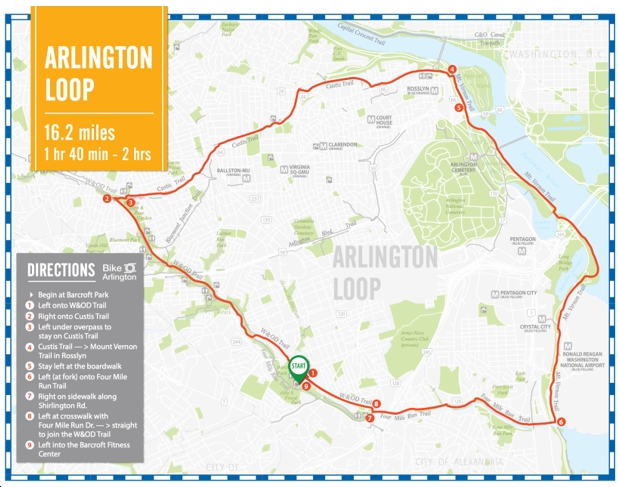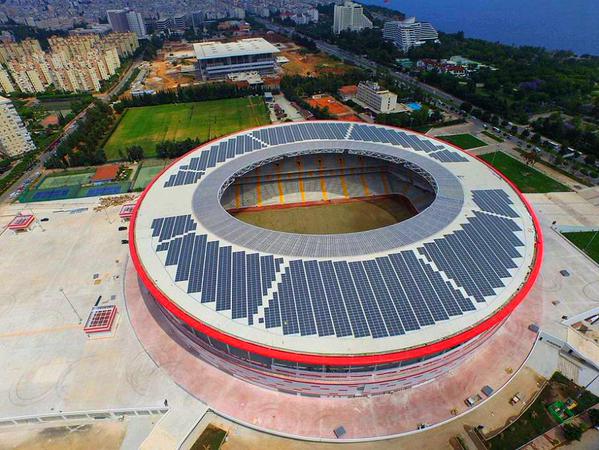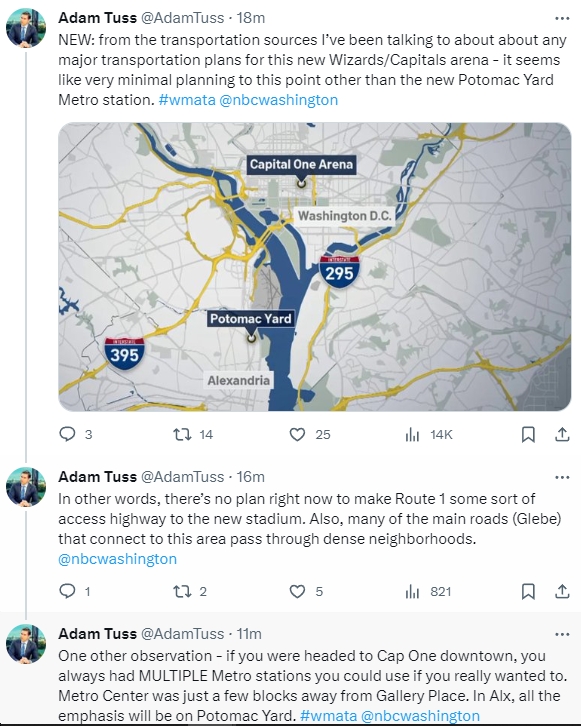See below for a looong – but interesting – Facebook post by Del. Danica Roem (D-Manassas/PW County) on I-66 tolls, transportation funding, etc. I’ve bolded some parts that jumped out at me, also put some of my own comments – as we well as a few by other folks (from Twitter and Facebook) that I thought were relevant and/or I agreed with – in brackets and bold/red.
The $46.75 toll on I-66 this morning is just wrong as is how we fund our transportation system in Virginia in general. [In fact, as a VDOT analysis found in December 2017, the average round-trip toll on I-66 was $14.50, with only a tiny percentage of drivers paying the highest tolls. Also note that travel times were down – and average travel speeds up – sharply compared to the start of dynamic tolling. And, of course, as Sen. Dave Marsden explained, “No one is required to use these toll lanes. It is optional…HOV is still free.” Finally, the money from these tolls is being used to expand capacity on I-66, not just in terms of cars but also transit, bicycle lanes, etc.]
In this status, I’m going to dissect the specific problems I have with the I-66 tolls and tolls in general and then broaden out to the larger issue of transportation funding and public policy decisions I’ve strongly disagreed with as well as some that I have supported. [The larger issue definitely needs to talk about smarter growth, transit-oriented development, and the fact that suburban/exurban sprawl almost inevitably leads to heavy dependence on the automobile to get around, ergo traffic problems.]
-I get the basic point of dynamic tolling is to control traffic volume. A $47 toll is supposed to be the financial equivalent of a giant “Do Not Enter” sign. However, I’ve said on a number of occasions that the General Assembly should focus on lessening the operating hours for non-HOV commuters by 1.5 hours, having the state standard of 55 mph minimum average speed inside the Beltway be closer to the 45 mph federal standard, and completing the widening toward Glebe Road inside the Beltway in order to reduce the issues that in my best judgment artificially raise capacity during tolling hours, which make the tolls more expensive. [Several responses from Allen Muchnick, who runs the blog “WISER, NOT WIDER: OUR FIGHT FOR A SUSTAINABLE I-66″ and describes himself as “a leading bicycling and transportation-reform activist at the local, regional, and statewide levels”: a) “Solo, toll-free commutes on urban freeways are inefficient, unrealistic, and unsustainable, but car commuters can choose ANY 2 of these 3: drive solo, drive toll-free, or drive congestion-free. Two out 3 ain’t bad!”; b) “Most likely, some traffic incident caused the peak toll prices on 3/6/19; however, toll cheating by solo motorists on I-66 ITB contributes significantly to the high toll prices and NOBODY is doing anything to fix that!”; c) “Virtually NONE of your constituents pay those tolls. VDOT says that PWC-area drivers comprise only 3% of the traffic at I-66 MM-67, and 2/3 of the MM-67 traffic exits at Ballston or before.”; d) “What was truly inequitable was the pre-tolling situation when solo drivers not paying any toll were selfishly delaying carpoolers and express bus riders on I-66 ITB.”; e) “Transit is poor b/c previous PWC officials failed to fund it. Now, the I-66 ITB tolls are generating >$10M/yr for I-66 corridor travel alternatives. Over the 40-yr MOA, that new $$ will be transformative”; f) “…the expanded hours were long overdue and are the most beneficial part of the change. Now, I-66 express buses are not stuck in gridlock from 5:30-7 AM and carpoolers are not limited to the 2.5-hr HOV windows. Now, I-66 bus transit is much faster & costs less to run.”]
-Meanwhile, ~$47 prices out my Manassas Park constituents almost entirely when their taxes pay for maintaining the same road. I have a small handful of constituents who can afford that in very specific parts of Gainesville and Haymarket and a couple places in Manassas. But most of the 13th district is priced out completely at that level, including just about all of Manassas Park. That’s an equity problem. [As environmentalist – formerly with the Chesapeake Climate Action Network – and cyclist Paul Burman pointed out on Twitter, “Transportation by personal vehicle is not equitable in the first place and requires massive public subsidies. Lower the tolls, and you increase congestion. We have to work to create convenient and viable alternatives to driving. This is particularly challenging for exurbs.”]
-Let’s get real about this: People who don’t have to worry about $47 because they’re on their way to six or seven-figure jobs inside the Beltway will keep driving I-66 because the financial impact is much less to them compared to someone working in the service industry who’s making $12 an hour in Arlington versus $7.25 in Prince William. But even $20 prices out most of my constituents, let alone $47. That’s not right.
-But let’s say you don’t have that kind of money and you’re on your way to a doctor’s appointment at GW or Georgetown hospitals or you have a five-figure job. Chances are if you were battling it out on Route 28 and I-66 before getting to the Beltway, you may be running late and instead of having to go on 495 South to 50 East, you’re left sucking it up and losing 10 percent to 50 percent of your day’s wage during peak tolling hours.
-I’ve made the case repeatedly regarding tolls that:
1) You shouldn’t have to pay again with tolls to use a road you already paid for with your taxes in the first place. [Relevant comment by cyclist and smart growth advocate Rob Delach: “all those non-toll roads are subsidized by the rest of the taxpayers. You aren’t paying the true cost of driving when you use them. The toll roads are getting at making you pay the ACTUAL cost of driving…Cars are subsidized approximately 9X over what you spend on driving. Transit is subsidized approximately 1.5X over what a rider spends. Biking and walking, subsidized functionally almost zero.”]
2) Public roads shouldn’t be sold out for private profit.
3) Our statewide transportation funding is one-ninth of where it needs to be, according to the money available for SmartScale ($780 million) vs. the number of projects submitted for SmartScale funding ($7 billion).
Now, the question then becomes: “You’re our delegate. So what are you doing about it?”
In the General Assembly, I’ve successfully helped fight off adding even more tolls (reverse tolls) to I-66 on two occasions (2018 and 2019) but I haven’t had a chance to vote on legislation to roll back the hours or the tolls themselves because those bills die in committee before reaching the House floor.
However, figuring that it would be more likely that the 51-49 Republican majority would support a Republican bill rather than a Democratic freshman’s bill when they’re targeting my seat, I crossed party lines to sign on as the chief co-patron of a bill HB 2511 (http://lis.virginia.gov/cgi-bin/legp604.exe?191+sum+HB2511) that would have restricted the tolling hours on I-66 to 6:30-9 a.m. eastbound and 4-6:30 p.m. westbound. [Comment by Allen Muchnick: “HB 2511 would produce even higher I-66 tolls. Hugo and LaRock are poor role models for equitable and sustainable transportation policy.”]
The bill passed the House Transportation Committee but died in the House Appropriations Committee.
I’ve continued to advocate for bills to restrict tolling so it’s not out of control. I even opposed including potential tolling as a funding stream for interstate studies because those tolls are the abdication of the state government’s responsibility to properly and fully fund transportation through the transportation trust fund and our regional authorities. Our commonwealth isn’t dedicating enough money for transportation because some legislators are so scared to death of the word “tax” they killed a perfectly reasonable approach regarding the quarterly diesel tax commercial truckers pay to the state this year that would have brought back more than $20 million for the NVTA (Northern Virginia Transportation Authority) and last year rejected the governor’s amendments to restore $35 million a year to the NVTA that was transferred away from our road projects and assigned to dedicated funding for Metro. [My view is that we should be putting a significant price on carbon pollution, raising the gas tax and stopping all subsidies – explicit and implicit – that encourage sprawl development, dependence on automobiles, etc. We should then invest that money almost exclusively into non-fossil-fuel-based, non-environmentally-destructive modes of transportation.]
Of course Metro should have dedicated funding but we should be fully funding Route 28 improvements while we do it. And what happened when the governor’s amendments to include an extra $1 a night on $100-a-night hotel stays in Fairfax, Loudoun, Arlington, Alexandria and Falls Church and add $250 to the grantor’s tax on a $500,000 house being sold in those same localities (not Prince William, Manassas or Manassas Park, mind you) in order to restore $35 million of annual NVTA funding went down on a party-line vote last year?
Well, the Route 28 widening in Centreville is now being restricted to one additional lane north and south (six lanes total) instead of the hybrid approach that would have gone from six lanes in the south (three on each side) to eight lanes in the north near New Braddock Road. [Study after study has found that widening roads is absolutely NOT the answer. For instance, see this article on “Induced Demand” (“Rather than thinking of traffic as a liquid, which requires a certain volume of space to pass through at a given rate, induced demand demonstrates that traffic is more like a gas, expanding to fill up all the space it is allowed.”) and The Science Is Clear: More Highways Equals More Traffic. Why Are DOTs Still Ignoring It?]
That’s a huge problem for my constituents and that’s what happens when ideological talking points get in the way of pragmatism. The tax issue was a non-issue for Prince William, Manassas and Manassas Park but the vote against it now hurts my constituents’ commutes while shrinking the pot of money available for road projects in Prince William County, Manassas and Manassas Park.
That’s why my jaw dropped and I held my hand over my mouth when the vote went down 49-51. Rejecting those amendments was the worst decision the General Assembly could have made for the commuters I represent in Prince William and Manassas Park.
And, look: I’m still a big advocate for mass transit — I’ve put in two resolutions regarding commuter rail efficiency studies and voted to put a floor on the Northern Virginia regional motor fuels tax so we could bring back millions of dollars for the PRTC (OmniRide) and VRE, which is why we now have the Heathcote-to-Arlington OmniRide commuter bus. That was one of the smartest votes I cast during my two sessions in Richmond because it corrected a problem lingering from HB 2313 in 2013. [Yep, that’s the key – transit, along with smart growth and not sprawl-oriented development patterns.]
In short, we need more legislators who focus on and prioritize comprehensive transportation policy in the General Assembly. This is my skill set. This is what I bring to the table as someone who spent more than nine years covering our transportation system in Northern Virginia for the Gainesville Times and what I’ve done in Richmond, filing six pieces of transportation-related legislation during the last two years. That’s why I’m running for re-election this year: to get into the majority, ask again to be seated on the Transportation Committee and work together with my colleagues on the Finance and Appropriations committees to make sure we’re fully funding transportation in Virginia without relying on even more tolls or $47 tolls for that matter to make it happen.
I’ll continue standing up for our commuters while advocating for both more mass transit and better, safer roads without shrinking from my responsibility as a state legislator to make equitable decisions about transportation funding that isn’t reliant on tolls.
When kids walk up to their public school building, they don’t have to pay a toll at the door for them to enter because our tax dollars already pay for their day at school. [Education is a core function of government, no question about it, as is transportation. However, it is *not* a core function of government to specifically encourage sprawl development, to spend overwhelmingly more money on roads and subsidies to car-based transportation than on transit, walkable/bikable communities, etc.] It’s a social responsibility we all pay for because education provides for the common good that benefits all of us. We need to look at transportation funding in an equitable, responsible and sustainable way that helps our region and commonwealth and that’s what I’ll continue to champion as your local transportation wonk turned delegate.
I don’t mind it at all when people who have different views with me on public policy agree that we should be looking for consensus and figuring out where we can find common ground. I’m willing to compromise, I’m willing to take tough votes and I’m willing to view governing as the art of half-a-loaf: that you don’t let the perfect be the enemy of the good.
That’s why I’ve crossed the aisle to support some legislation for transportation funding that I thought helped my constituents and opposed legislation from across the aisle that I didn’t think was a good deal for my constituents.
Whether in the majority or minority, I’ll continue working to find common ground that adequately addresses our problems and prevents $47 tolls in the first place. [Again, $47 tolls are very VERY rare…but they do grab the attention of the media, the public and politicians.]
-Danica














